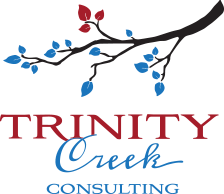
When Your Networking Is Not Working
We’ve all gone to conference or events, met people, traded business cards and agreed to keep in touch. However, when we return to the office, no follow up is ever done and the business cards are filed away or are placed in a pile on your desk.
Below are three quick tips Tim Shurr, the award-winning speaker, employee performance, human behavior and motivation expert, shares to get more out of networking relationships:
Make A Friend, Not A Contact
When you attend your next networking function, set out to make a few new friends. Ask questions, try to get a better understanding of who that person is, what they enjoy and why they’re attending the gathering. Shurr encourages us to make the person feel what he calls “LUV.” LUV is listened to, understood and validated. Once incorporated into your networking skills, you will make a strong impression.
Skip the Small Talk and Ask Revealing Questions
Do not begin your networking conversation with “What do you do?” Instead Shurr inspires us to learn more. For example, ask “So what do you plan to get from attending the function? What is important to you?” Since people enjoy talking about themselves and telling stories, a connection is made. This could lead to the person helping you “open a door” to a new client. If you never obtain business from the connection, at least you had a good conversation and Shurr believes the person will remember you.
Immediately Do Something Kind for the People You Meet
Here it comes, the important follow up! After the function, do take the time to send the person a quick “pleasure to meet you” email. Resist the urge to go for the pitch. Shurr suggests connecting with the person via LinkedIn and recommend them for their networking skills. This shows you’re a giver, not a taker.
As you begin to better your networking skills, Shurr prompts us to strive for quality over quantity. It is better to have “quality conversation than to have 6-7 introductions that go nowhere.” Some of your networking relationships might never last. Yet Shurr believes by adopting his three suggestions, you develop prosperous connections you refer to as friends. Lastly, Shurr reminds us, “only through resistance do we reach potential.”
Note: For more information about Tim Shurr and how he can transform the way people communicate with themselves and their customers visit: https://timshurr.com/who-is-tim-shurr/
